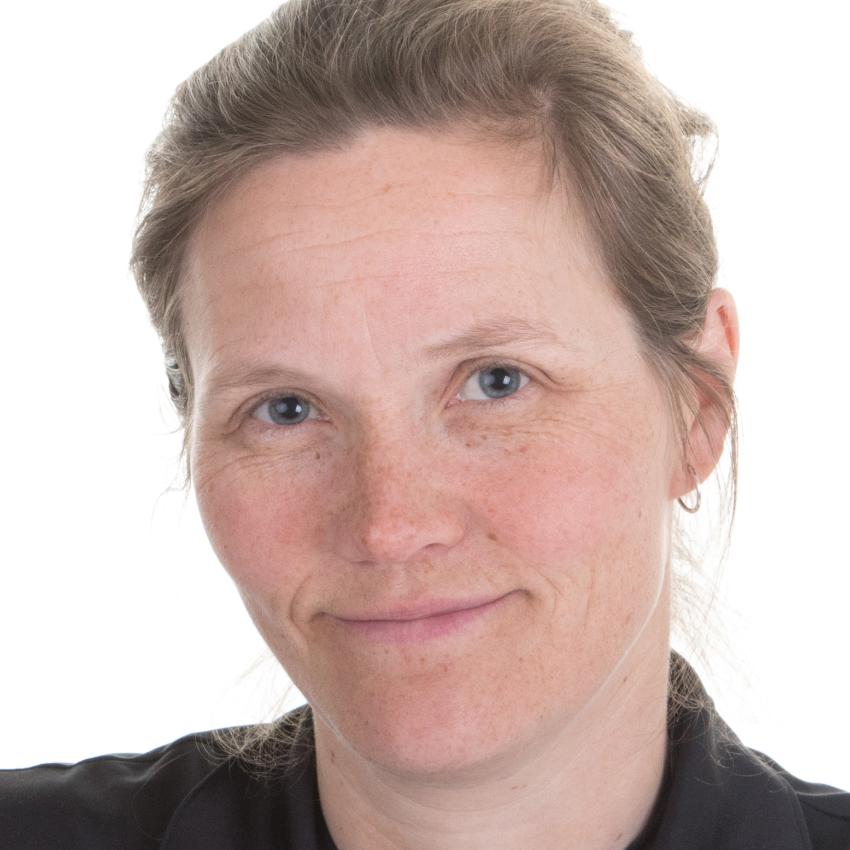Arctic Future Pathfinders Continues in the Arctic
The second part of the student course Arctic Future Pathfinders is being held in Cambridge Bay and Anchorage. "We want to teach a course about the Arctic in the Arctic, together with the local community," says UiT Pro-Rector Jørgen Berge.


Arctic Future Pathfinders is an interdisciplinary student course at UiT, developed as part of the One Ocean Expedition, a year-long circumnavigation. The course takes a holistic approach to the Arctic, combining traditional university lectures with teachings from knowledge bearers among Indigenous peoples from Sápmi, Kalaallit Nunaat (Greenland), and Nunavut, Canada.
Originally, the course was to be held aboard the sailing ship Statsraad Lehmkuhl, with a planned route through the Northwest Passage. However, on August 9, it became clear that the ship could not sail through the passage and would instead take a southern route to reach the west coast of North America to continue its circumnavigation.

A Course About and in the Arctic
This change led UiT to disembark the ship in St. John’s, Newfoundland, Canada, where fieldwork for the first group of students was completed, and the students returned home. Now, 30 new students will join a land-based course in Iqaluktuuttiaq (Cambridge Bay) in Nunavut and Anchorage in Alaska.

UiT Pro-Rector for Research and Development, Jørgen Berge, explains the decision as follows:
"Arctic Future Pathfinders is a course about the Arctic, where the original goal was to sail through the Northwest Passage and learn about the Arctic from a local and international perspective, and experience the effects of climate change firsthand. The Indigenous perspective and engagement with local communities are central to the course. Therefore, we chose to conduct the fieldwork for the second part of the course in the Arctic, in close collaboration with the local community in Cambridge Bay and Anchorage, rather than accompanying Statsraad Lehmkuhl southward," says Berge.
The course is supported and conducted in close collaboration with the Canadian High Arctic Research Station (CHARS), Arctic College, Annaana’s Camp, the Kitikmeot Heritage Society, and representatives and knowledge-holders from the local community.
A Personal Fight for Preservation
The first stop for the new group of students was the city of Edmonton in Canada, where they toured the Arctic Journey Gallery, part of the TELUS World of Science. The gallery is an example of how Inuit culture is being brought to life further south in Canada. Loss of language, traditions, and cultural identity has been a reality for many Inuit, especially due to colonization and historical traumas such as residential schools. This has resulted in a generation largely disconnected from their roots.

At the gallery, created in collaboration with Inuit elders from various parts of the Arctic, visitors can learn about traditional Inuit tools, such as stone lamps and ulus, a traditional knife used by Indigenous women in the Arctic. Workshops are also held to teach skills like sewing parkas and creating beadwork art.
Kimberly Tologanak, Arctic Leader Presenter at the Arctic Journey Gallery, shares her desire to educate others about their heritage and ancestors. It is especially important to her that her daughter knows her origins.
"I want her to know who she is, where she comes from, and how our ancestors survived in the Arctic," says Tologanak.

Food as Cultural Heritage
Tologanak also teaches about Inuit culture in local schools to provide both Inuit and non-Inuit with a deeper understanding of her culture.
Food plays a significant role, and for many Inuit in urban areas, accessing traditional foods like Arctic char is a challenge. The Arctic Journey Gallery has allocated funds to import such food from the Arctic.

"The food is part of who we are. It’s not just nourishment; it’s healing and identity. We want to show that our culture is alive and relevant," says Tologanak.
Connecting with Local Communities
The group of 30 students, along with 23 instructors and other staff from UiT, departs Edmonton for Iqaluktuuttiaq on Saturday. There, they will stay for a week, sleeping in tents at Anaana’s Camp and at the Canadian High Arctic Research Station (CHARS), before continuing to Anchorage. The course includes a combination of formal and informal teaching and learning activities, as well as collaboration with and lectures from local community members.
"The students get a unique opportunity to connect with the places they visit and through the lectures and stories from the local community. If we want to understand the Arctic from a holistic viewpoint, we have to learn first and foremost from the people that are living there. We want to teach a course about the Arctic in the Arctic, together with the local community," emphasizes Berge.
In Anchorage, plans include visits to the University of Alaska Anchorage, the city hall, and several museums. The participants are scheduled to return home in mid-September.